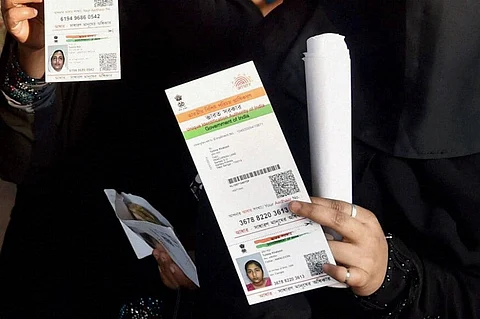
- Home
- Live Blog
- Breaking News
- Top Headlines
- Cities
- NE News
- Sentinel Media
- Sports
- Education
- Jobs

The Aadhaar project is constitutional and provides benefits related to welfare, but some of its flaws related to citizens’ privacy need to be ironed out. This, in essence, is the position the apex court has taken with the 12-digit biometric identification exercise in the country touted as the largest of its kind in the world. The 4-1 majority verdict handed down by the Supreme Court on Wednesday has cleared the use of Aadhaar for access to government welfare schemes. This signifies acceptance of the Central government’s primary defence that Aadhaar ensures proper distribution of benefits to crores of beneficiaries and prevents syphoning of funds. While welcoming the verdict as “historic”, Union Finance Minister Arun Jaitley has pointed out that the government is already saving Rs 90,000 crore every year by eliminating fake, duplicate or non-existent beneficiaries. He has also commented that critics of Aadhaar “should understand that they cannot defy technology”. However, the apex court’s verdict makes it clear that this technology must be applied within limits. First things first, it says that the project is serving a “much bigger public interest” while the collection of demographic and biometric data of citizens by UIDAI authority is “minimal”. The apex court agreed that failure to establish the identity of an individual had proved to be a major hindrance to the successful implementation of welfare programmes — that in the absence of a credible system to authenticate identity, it was becoming difficult to ensure that subsidies, benefits and services reached their intended beneficiaries. But is this database secure? According to the majority verdict, the safeguards put in place for collection, storage and use of Aadhaar data is “sufficient”. It has noted that only UIDAI mandated registered devices are being used to collect biometric data like an individual’s face, fingerprints and iris scans, that such data is encrypted and “a unidirectional relationship between the host application and the UIDAI” is created, that there is no possibility of the stored data being captured and misused. And what about the fears that the Aadhaar infrastructure is actually designed to create a surveillance state? The majority verdict rejects this contention, calling it “not well founded”— apart from ‘minimal’ biometrics collection, it has noted that the “purpose, location or details of the transaction” are not recorded in the exercise’
While putting the provisions of Aadhaar Act to scrutiny, the Supreme Court applied the ‘triple test’ consisting of existence of a law, legitimate state interest and test of proportionality. Consequently, while upholding the Aadhaar project, it has struck down “certain offending provisions” of the Act, which means the law will require a major revision as it stands presently. In particular, it has addressed apprehensions voiced by concerned individuals and citizen groups about indiscriminate linking of Aadhaar to various services. According to the verdict, Aadhaar will no longer be required for opening bank accounts, employee pension scheme, post office schemes, insurance policies, PPF and NSC accounts, mutual fund investments, mobile phone connections, admission to educational institutions and sitting for entrance tests like those of CBSE, NEET, JEE and UGC. Section 57 of Aadhaar Act has been struck down, which means private companies cannot insist on Aadhaar data to provide consumer services. Section 33(2) of this law goes too, so Aadhaar data need not be shared with security agencies in the name of ‘upholding national security’. This is noteworthy, considering the government’s long-held stand that the privacy of citizens cannot matter when it comes to security. This apart, while only the government could earlier complain about theft of Aadhaar data, private individuals too can henceforth complain about it. The apex court has also made it clear that no person can be denied social welfare benefits just because their Aadhaar card cannot be authenticated. However, the linking of citizens’ PAN information for filing tax returns will remain mandatory. This is welcome, considering the efforts of the government to fight tax evasion and make India a tax compliant country. So how is this verdict to be seen vis-a-vis the ruling given by the apex court last year that the ‘right to privacy’ is a constitutional right under Article 21 which guarantees right to life and personal liberty? The government’s argument that citizens did not have a fundamental right to privacy had been rejected in that August 24, 2017 ruling. On Wednesday, the Supreme Court laid down that not all matters pertaining to an individual were an inherent part of the right to privacy — Article 21 affords protection for only those matters in which there is a “reasonable expectation of privacy”. Significantly, it has long been claimed by vested interests that the Aadhaar card is meant for ‘residents’ under the Act, not just for citizens. However, the apex court has now directed the government not to provide Aadhaar to illegal immigrants. For Assam, with the NRC exercise yet to be completed while the Aadhaar exercise is set to begin, this directive is of vital import. There is already speculation that large numbers of illegal immigrants have managed to get their names into the draft NRC — which makes the claims and objections stage a hugely important part of the exercise. At this juncture, the State government must ensure that Aadhaar card is not given indiscriminately to illegal aliens.